Features, selection and use of a covering film for repair
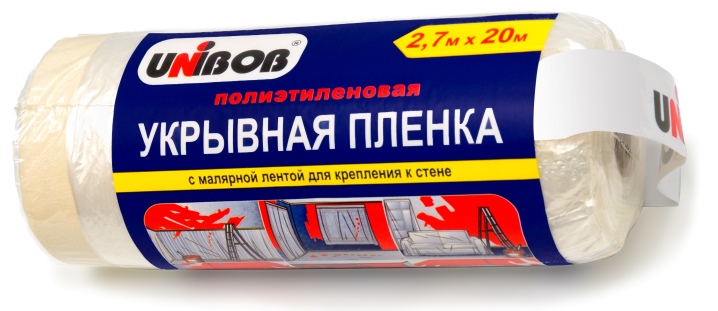
Covering film is an indispensable material for the renovation and decoration of premises. From the material in this article, you will find out what it is, what advantages and disadvantages it has, as well as what are the nuances of its calculation and choice.
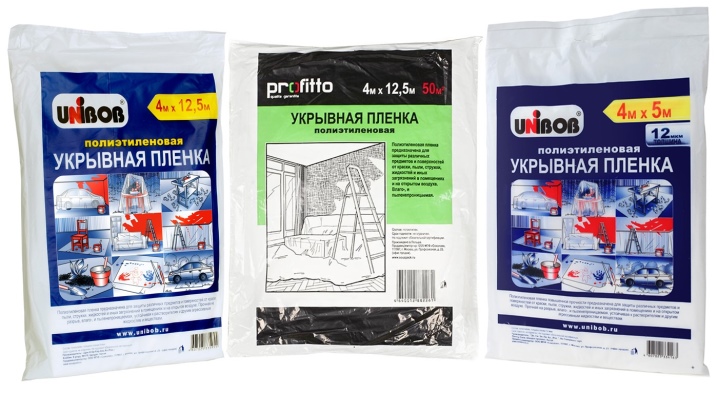
Advantages and disadvantages
Covering film for repair has many advantages. It is used when carrying out painting and plastering works, it protects already painted surfaces, it saves furniture. In addition, it is distinguished by:
- strength, practicality and functionality;
- heat, wind and vapor tightness;
- resistance to temperature precipitation;
- light transmission, light weight and flexibility;
- counteracting the appearance of condensation;
- inertness to harmful microflora;
- ease of use and disposal;
- low price, availability and rich assortment;
- frost resistance and light stabilization;
- the possibility of using in geometrically difficult places;
- resistance to decay and ease of use.
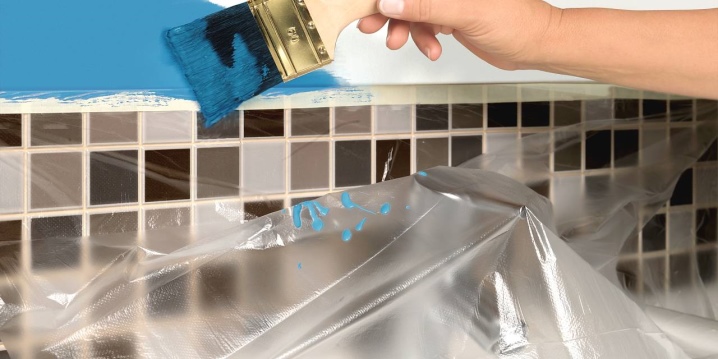
The material is used when carrying out repair and construction work. They cover objects that can get construction dust, dirt, moisture, mortars. The foil is used to cover windows, doorways, floors, walls, as well as furniture that cannot be removed from the premises being repaired. Fasten everything with adhesive masking tape.
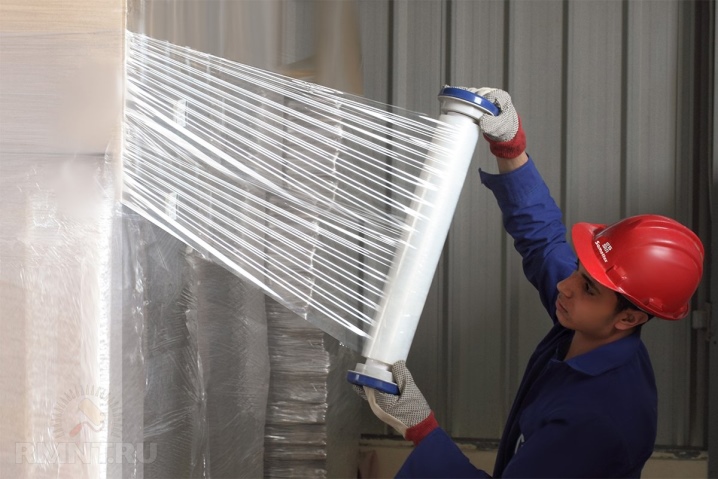
There are also options for sale with scotch tape for painting, along the edge of which there is adhesive tape. They are used in the repair of city apartments and private houses.
However, along with the advantages, the covering film for repair has disadvantages.
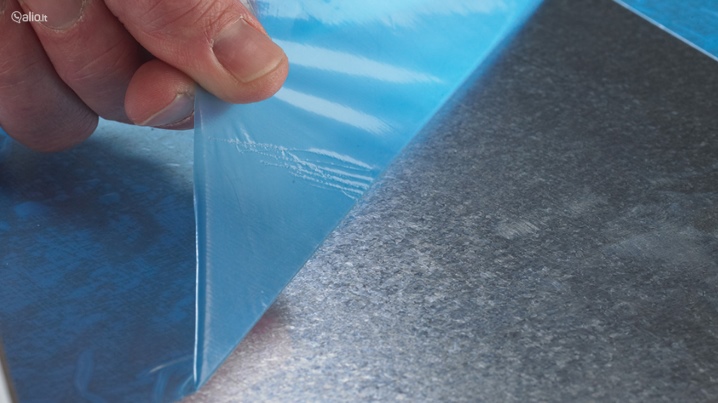
For example, the film is not at all universal, its thin varieties are not designed to work with heavy loads. In addition, with the wrong choice, the material does not withstand significant mechanical stress.
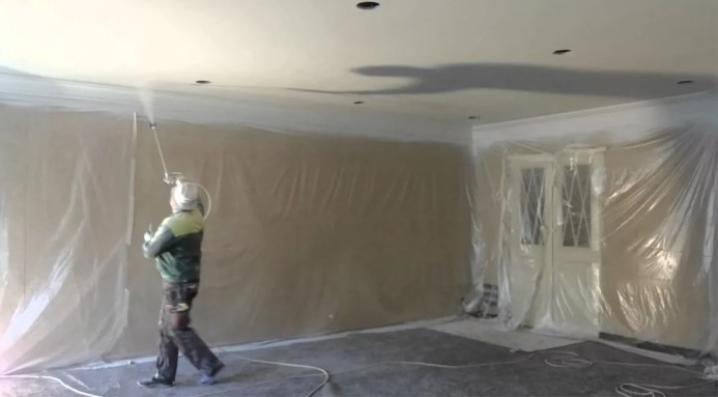
Views
Thanks to the development of the modern chemical industry, films for various purposes are sold on store shelves. Covering films for repairs are made from polyethylene granules by extrusion. Each type of polymer material has its own characteristics and is intended for a specific type of repair work.
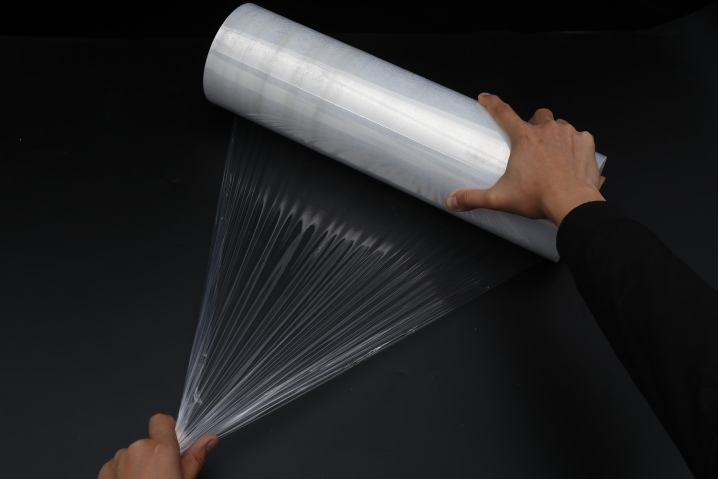
Diffusion
This type of material is considered universal. It protects building structures from moisture and contributes to wind protection. It is bought when it is necessary to cover the thermal insulation layers. As necessary, the joints of the material are connected with masking tape. Diffusion film is used to create hydro and thermal insulation of roofs and attics in houses with gable roofs. It does not let in not only moisture, but also cold. The material is sold in rolls 1.5 m wide and 5 m long.
The structure of the diffusion film is excellent for air, vapor and gas permeability.
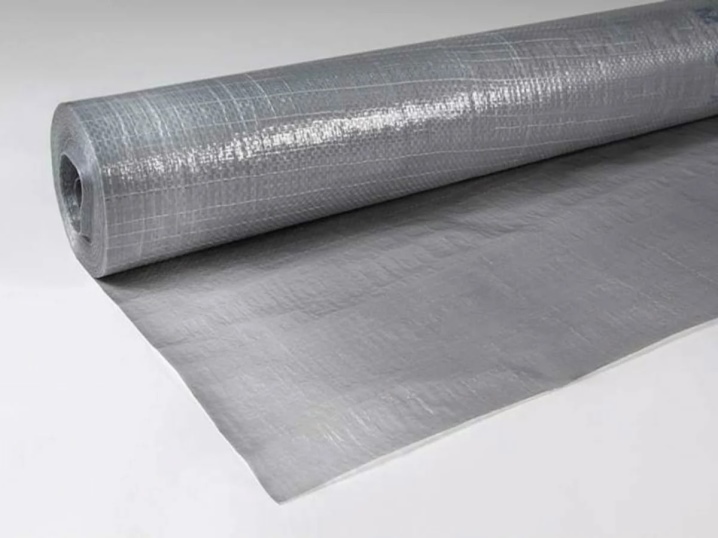
Windproof
This type of polyethylene film by its structure is a multilayer type material. Windproof film is used in conjunction with heat-insulating building material for thermal insulation of structures (mineral wool, foam). It is resistant to moisture, does not allow it to penetrate into thermal insulation, but has the ability to transmit vapors outside. Comes on sale in rolls.
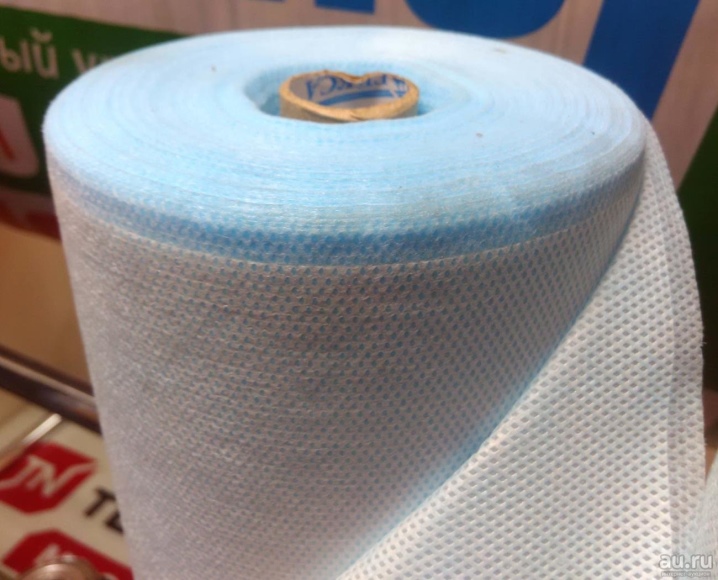
Waterproofing
This type of covering film is used in high humidity conditions. For example, it is indispensable in buildings under construction where there is a high risk of condensation. The waterproofing film is suitable for protecting roofs, floors and walls from moisture. With its help, the facades of buildings are protected, it can be laid between the walls and the foundation, as well as the base of the basement floor. The footage of one roll is 75 m2.
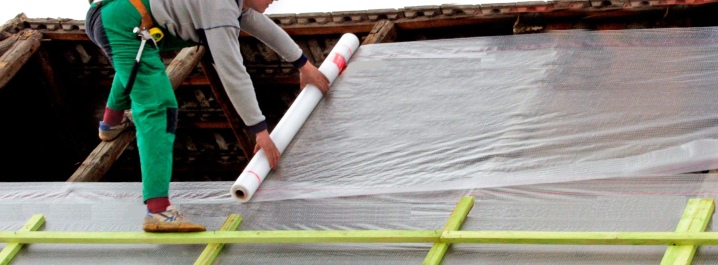
Reinforced polyethylene
The covering film of the reinforced type differs in the type of structure. It is denser, reinforced with a polyethylene mesh, is particularly durable and has high thermal insulation values. The material does not change its shape, it goes on sale in rolls with a width of 2 m and a length of 20, 40 and 50 m. It is used in the construction industry. It is protected by construction corridors, machines, and devices of enterprises. The material consists of 3 layers.
Due to its characteristics, the protective reinforced covering film is often used as a temporary shed over the stored building materials.
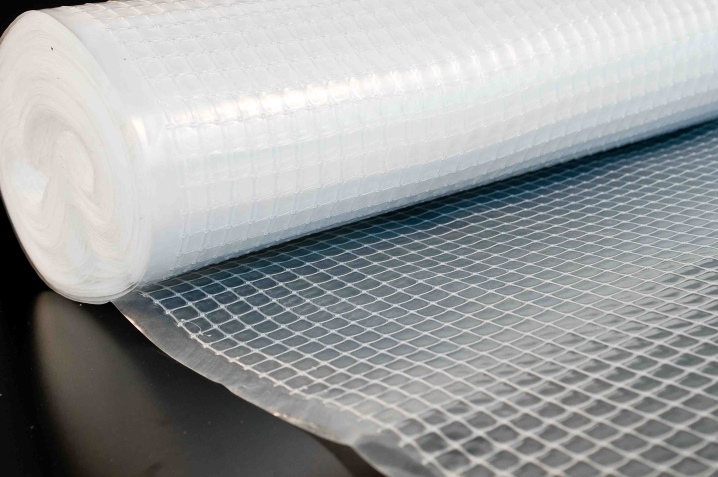
Packaging
This type of covering film is sold in rolls with different sizes. In addition to moisture resistance characteristic of all types, this variety is highly elastic and resistant to temperature extremes. The packaging film is non-toxic and has dielectric properties. Its surface can be printed with varying complexity.
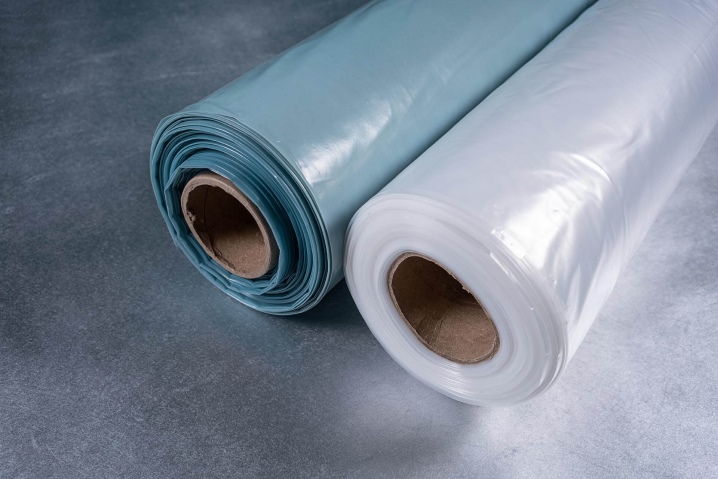
The material is cheap and varied, it is used for different purposes. It does not allow moisture, acid, and is inert to alkalis and organic solvents. They can pack building structures, cover wood, pallets with bricks. The material has heat-saving properties and does not transmit ultraviolet light.
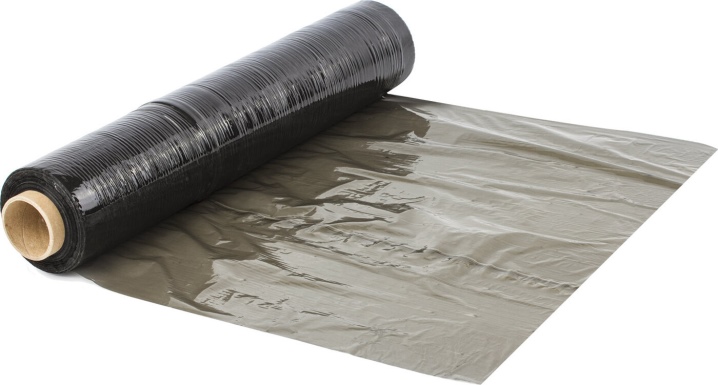
Stretch
A distinctive feature of this variety is its high elasticity. Thanks to this, it can tightly fit the wrapped objects and be fixed on them. Stretch film is used to hold the same items together in a group. During transportation, it protects them from dust, dirt, water, mechanical damage.
This variety differs in thickness and color.
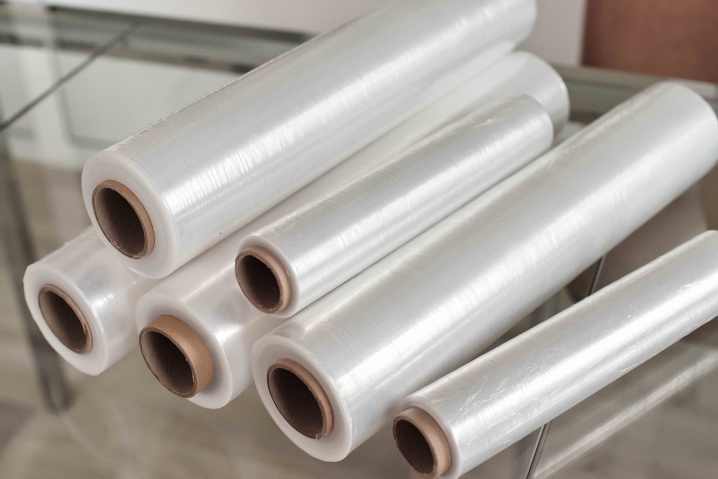
The denser varieties are suitable for packing heavy loads. The color of the classic material is transparent. If it is necessary to cover the stored or transported material from prying eyes, it is covered with colored film. It is used for wrapping bricks, stones, curbs.
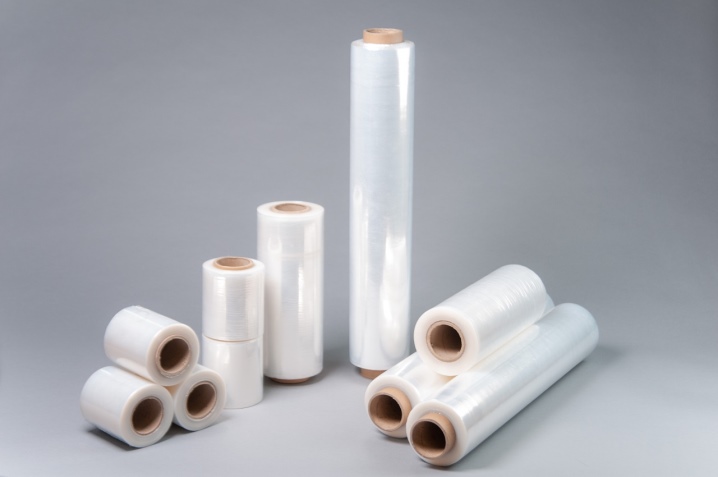
Construction and technical
This material is obtained by recycling polyethylene. Technical material is painted black, used as garbage bags or containers for the disposal of construction waste. The material has an optimal thickness, is able to withstand different weights, is durable, and is sold in rolls.
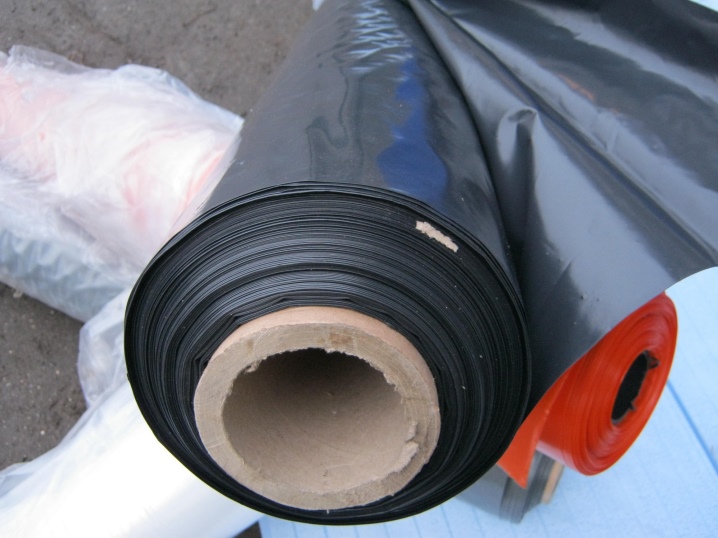
How to calculate the quantity?
The volume of purchased material depends on its purpose. Wherein you cannot rely on an approximate amount: before buying, you need to measure the area of \ u200b \ u200bthe shelter. However, everything is individual, and therefore it is often necessary to measure the length and width of the covered area. If you need to cover the furniture, measure its height, not forgetting about the allowance for measurements for joining the film for gluing with tape.
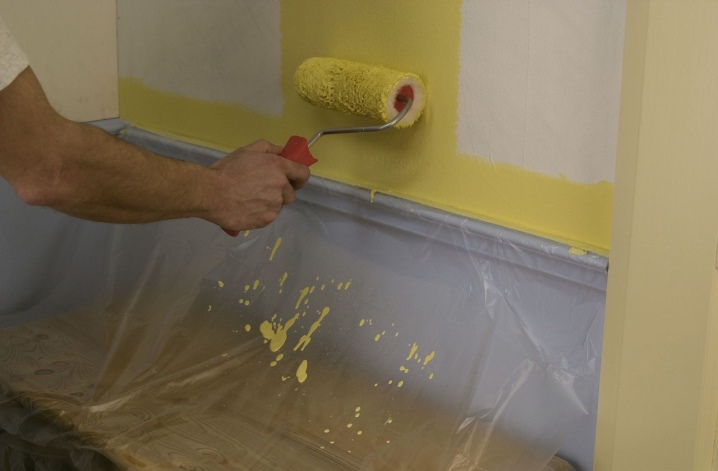
It is undesirable to save in this case: if you plan to work with cement for wall decoration, and the floor has already been laid in the room, you will need to buy a film on the floor. At the same time, in order not to trample the covering of the corridor, you will have to buy a covering material for it. You need to measure the floor area of the room itself, the corridor, and the kitchen (bathroom), if tiles are already laid in it.
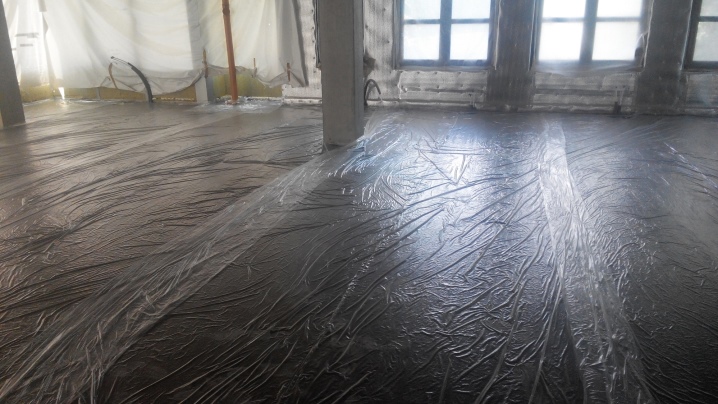
The film has different widths. It will have to be glued together. If it is necessary to cover the floor covering with an area of 4x4.3 = 17.2 m2, the corridor area equal to 1.5x2.5 = 3.75 m is added to the footage. In addition, you will need to cover the bathroom (kitchen) floor. You can add 5 m to this, in total you get 25.95 sq. m or almost 26 m2.
To protect a surface of 26 m2, an average of 9 m of covering film will be required. This means that you need to buy 10 m of dense roll material. Sometimes the technology requires the purchase of a double gauge length. Moreover, you will have to buy material specifically for laying on the floor. A thin variety for protecting furniture from dust will not work.
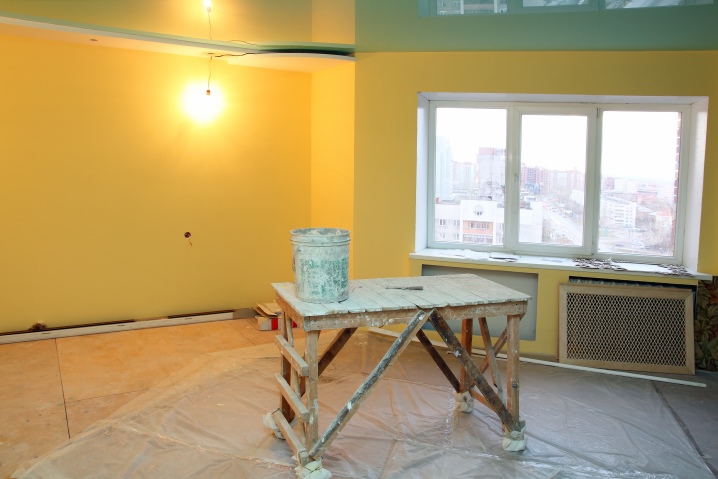
How to choose?
The choice of material must be based on several criteria. It is important to choose the option that will be suitable for the purpose. For example, products for disposal of garbage and replacement of roofing material have different characteristics. One film does not replace the other at all, you need to understand this. You can cover furniture, a finished floor, as well as already finished areas of the room with a transparent material.
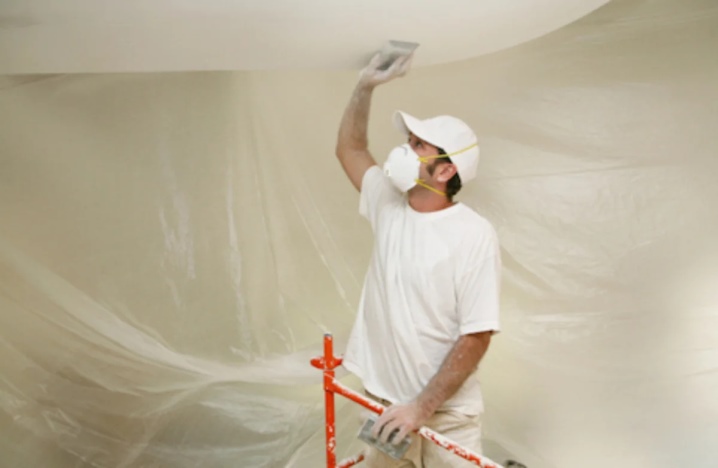
Wherein there is no need to buy an elastic version, however, the thickness must be sufficient so that the film does not tear until the end of the repair. If you need to transport furniture and building materials, it is better to buy more expensive film. An elastic covering variety is suitable, which will protect objects from chips and mechanical damage.
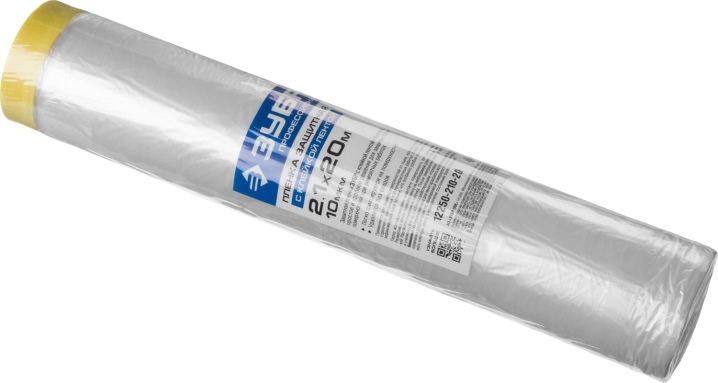
How to use?
It is necessary to use the film for covering furniture, floors or walls during repairs correctly. If it is not possible to take objects out of the room, they buy thick film with a margin for protection. She covers everything you need, covering with an overlap and connecting the edges with adhesive tape. If you need to cover wooden furniture, then it is first covered with a blanket, and only after it is wrapped with a film. This will prevent accidental damage to the edges during the repair. Electronic equipment is first packed in foil, sealed with tape, then put into boxes. If possible, they are taken out of the room.
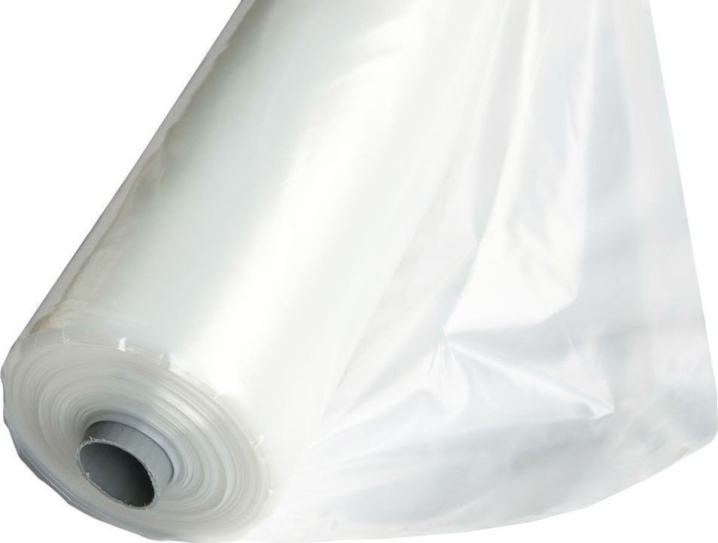
To protect doorways, they are sealed with tape and foil. It is undesirable to save on material and take ordinary tape for fixing. When peeling it off, the quality of the base coating often suffers. When carrying out repair work, you can close the wallpaper from dust with a thin double-type transparent film. The roll material can be cut, getting a 3-meter width instead of 1.5.
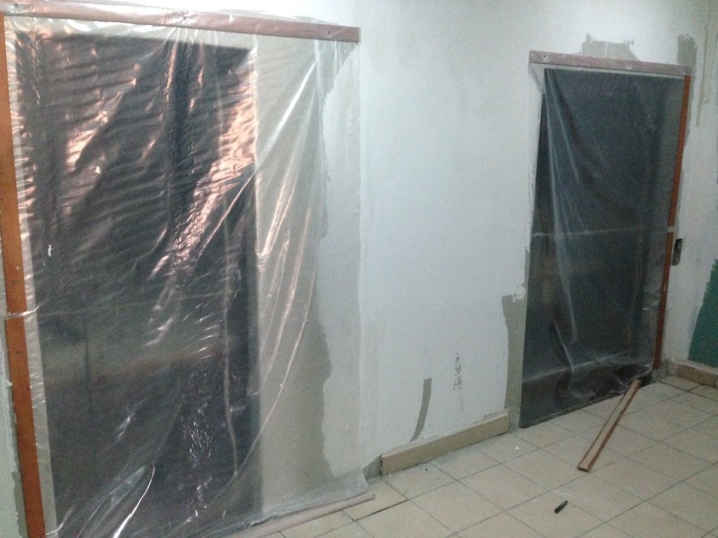
To cover the floor, take a black film. With the help of it and cardboard, they create reliable floor protection in a house or apartment, it can be used to cover the floor with a special structure. In this case, the bottom layer is necessary for closing from construction dust. The upper one is used to cover the floor from large debris that appear during the repair. (for example, to cover the floor from pieces of plaster). This method of covering is relevant when carrying out such repair work as drilling walls, creating a frame for a stretch ceiling.
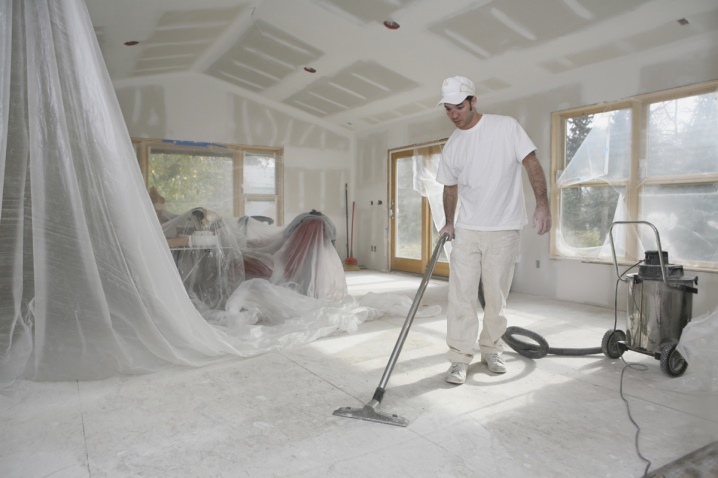
For covering film with masking tape, see the video.







The comment was sent successfully.